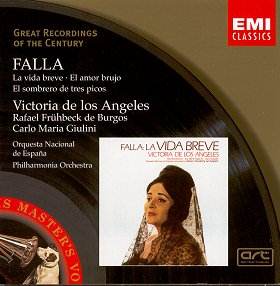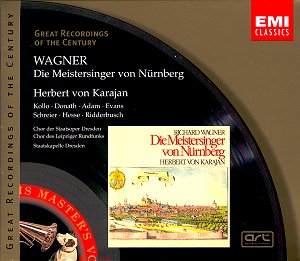 Composer: Claude Debussy
Composer: Claude Debussy
Works: Pelléas et Mélisande
Performers: Richard Stilwell (Pelléas), Frederica von Stade (Mélisande), José van Dam (Golaud), Ruggiero Raimondi (Arkel), Nadine Denize (Geneviève), Christine Barbaux (Yniold), Pascal Thomas (Berger)
Recording: Berlin Philharmonic Orchestra, Berlin German Opera Chorus/Herbert von Karajan, recorded in the Philharmonie, Berlin, December 1978
Label: EMI
Debussy’s Pelléas et Mélisande, a cornerstone of French operatic literature, emerges not merely as a narrative of love and tragedy but as a profound exploration of human emotion and existential uncertainty. Premiered in 1902, the opera eschews the grandiose for the intimate, embodying Debussy’s innovative use of harmony and orchestration to evoke dreamlike atmospheres and psychological depth. This recording, under the baton of Herbert von Karajan, presents a compelling interpretation that balances the opera’s spectral qualities while navigating its complex emotional landscape.
Karajan’s approach to this elusive work distinguishes itself from more traditional French interpretations, which often revel in the lushness of orchestral colors. His orchestration, while perhaps lacking the characteristic fruity warmth of French woodwinds, instead reveals a clarity and precision that enhances Debussy’s intricate textures. The Berlin Philharmonic, famed for its virtuosic capability, delivers a performance that is at once luminous and haunting. The conductor’s mastery lies in his ability to maintain a lightness of touch, allowing each instrument to waft in and out of the texture, creating a kaleidoscopic soundscape. This orchestral transparency serves Debussy’s music well, particularly in passages like the “Entr’acte” where the interplay of strings and woodwinds captures the ethereal quality of the setting.
The vocal performances are equally notable. Richard Stilwell’s Pelléas, while occasionally husky, evolves throughout the production, conveying the character’s naïve ardor with increasing beauty and nuance, particularly evident in his tender exchanges with Mélisande. Frederica von Stade, embodying the enigmatic Mélisande, brings a haunting quality to her portrayal, alternating between straight, girl-like tones and a heavier vibrato that adds to the character’s mystique. Her delivery of “Je t’aime aussi” is particularly poignant, reflecting the opera’s theme of unfulfilled longing and emotional distance. José van Dam’s Golaud provides a compelling counterpoint; his portrayal encapsulates a psychological complexity that resonates through the opera’s darker moments. His fear-laden outburst, “Une grande innocence,” captures the tragic tension between innocence and experience that permeates Maeterlinck’s libretto.
Sound quality in this recording is exemplary, capturing the nuances of both orchestra and voices with remarkable fidelity. The engineering allows for a dynamic range that highlights the contrasts between the opera’s somber themes and the fleeting moments of light and joy, such as Arkel’s hopeful proclamation of “un peu de joie et un peu de soleil.” This sonic clarity enhances the listening experience, making the intricate counterpoint of Debussy’s score palpable.
While the tradition of Pelléas performances has been well established, Karajan’s interpretation stands apart, as it does not merely seek to replicate the past but to reinterpret it through a unique lens. His ability to shape the overarching narrative without succumbing to Wagnerian bombast is commendable; indeed, he manages to retain a delicate balance that underscores the opera’s introspective nature. The context of his recording, arriving from a period when he was often criticized for his glossy approach, reveals a side of the maestro that can be both deeply sensitive and profoundly insightful.
The combined force of Karajan’s orchestral direction and the cast’s potent performances positions this recording as a significant entry in the Pelléas et Mélisande discography. Its distinct interpretation may not align with every listener’s expectations, particularly those steeped in more traditional readings; however, it offers a fresh perspective that illuminates the opera’s emotional and thematic depth. Karajan’s Pelléas is a testament to his capacity as a conductor to transcend stylistic boundaries, affirming his stature as a musician of enduring relevance and insight.



